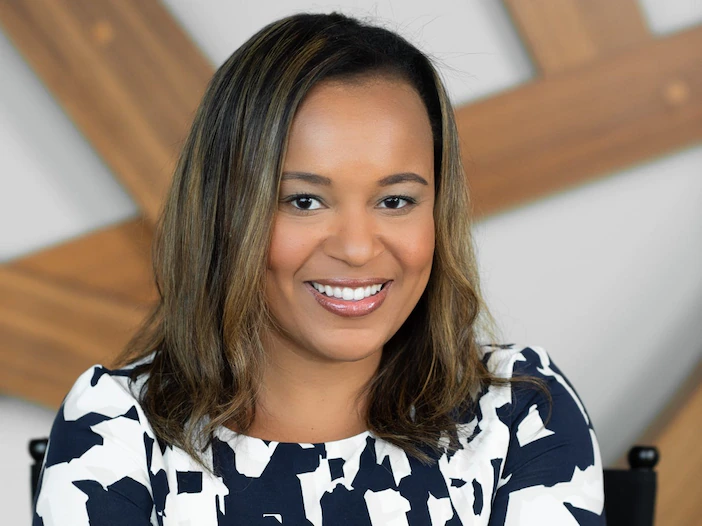Google hands out millions of dollars to startups. Its VC and partnerships lead gives her 5 tips to land a deal with the tech giant.

- Google has millions of dollars to hand out via startup funding programs and VC partnerships.
- Insider sat down with the firm’s EMEA industry lead Rachael Palmer to find out more.
- She shared her top 5 tips for venture capitalists and founders hoping to work with Google.
- See more stories on Insider’s business page.
Since 2016, Rachael Palmer has been overseeing Google’s partnership strategy with venture capitalists and startups throughout Europe, the Middle East, and Africa.
Recent successes include the launch of a $2 million fund for Black founders in Europe, and a similar $3 million scheme in Africa.
“My role focuses on driving partnerships with the region’s top VCs and startup but also working on initiatives to transform the ecosystem for the better,” Palmer told Insider.
Palmer previously worked at Microsoft and American Express, spending a lot of time working with small businesses at the latter. After joining Google as an internal consultant, she “quickly found my way back to working within the startup ecosystem.”
Palmer says there no such thing as a “typical workday” for her role at Google.
“I spend some days working closely with founders to understand their business and how we can help them, or with internal product teams discussing opportunities to engage the VC and startup ecosystem,” she said.
“Another day might be spent with a VC learning more about their portfolio companies, how we can partner and also what they look for in investments. Yet another could be spent working closely with our Black Founders Fund, with either the founders themselves or others in the ecosystem that share our vision for a more diverse, equitable startup ecosystem.”
Insider asked Palmer to share her top five tips for working with Google.

T3 Magazine/Getty Images
If you’re a startup founder hoping to benefit from a Google investment one day, Palmer says her main tip is to “ensure you really have something to offer Google and its users” because they remain “at the core of everything we do.”
“I meet many startups that want to get their content or product built into Search,” she said. “However, they often fail to step back and think about what’s in it for our users and how it enhances the product. For a partnership to work, it has to be mutually beneficial to both sides.”
2. Ask yourself: ‘Will my company’s value mesh with Google?’

Ng Han Guan/AP Photo
Palmer told Insider she’s keen to get know what’s in “the DNA of a company” when looking out for potential startup and VC partners.
“I really care about its values and how closely it meshes with Google,” she said. “In a pre-COVID world, I used to enjoy a visit to the offices as you can tell a lot about a company through seeing where and how they work.”
3. VCs need to think seriously about diversity.

aelitta / Getty Images
When it comes to picking VC business partners, Palmer said: “I obviously care deeply about their ability to pick winners but I also care about their perspective on diversity.”
This is so key, Palmer says, that the first two questions she runs through will be: “Are they a good partner for us in this space? Are they trying to do anything to transform the ecosystem?
“To see the change we want to see in the ecosystem, we need to partner with others as we can’t do it alone,” she added.
4. You need to be able to think locally and globally.

Robert Alexander
“I’ve always been impressed by the go-to-market strategies of EMEA-based startups. Many startups across EMEA start with the mindset of geographic expansion,” says Palmer.
“They often establish themselves in their home country then quickly create the blueprint for expansion by becoming really good at localization, developing local partnerships and navigating regulatory situations in different markets.
“This is key to scaling across the world and attaining unicorn status in this region.”
5. Expect competition.

PEDRO PARDO/AFP via Getty Images
When you’re as big as a company like Google, there is no shortage of rival founders and VCs interested in working with you.
Speaking about this year’s Black founder initiatives, Palmer told Insider: “In Europe, we had almost 800 applications across 18 countries, almost 3,000 applications across 36 countries in Africa!”
Ultimately, Palmer reiterates, it’s important to remember: “What we are looking for in partners really depends on the type of partnership.”
She said: “Sometimes we are building new products and need market feedback from a specific vertical which means we look for a certain type of VC or startup focus. If it’s a product integration, our teams generally look for startups that are slightly later stage and have attained a product or market fit.
“If it’s a commercial partnership, we look for those that are mutually beneficial to both us and the startup.”
Credit: Source link


Comments are closed.